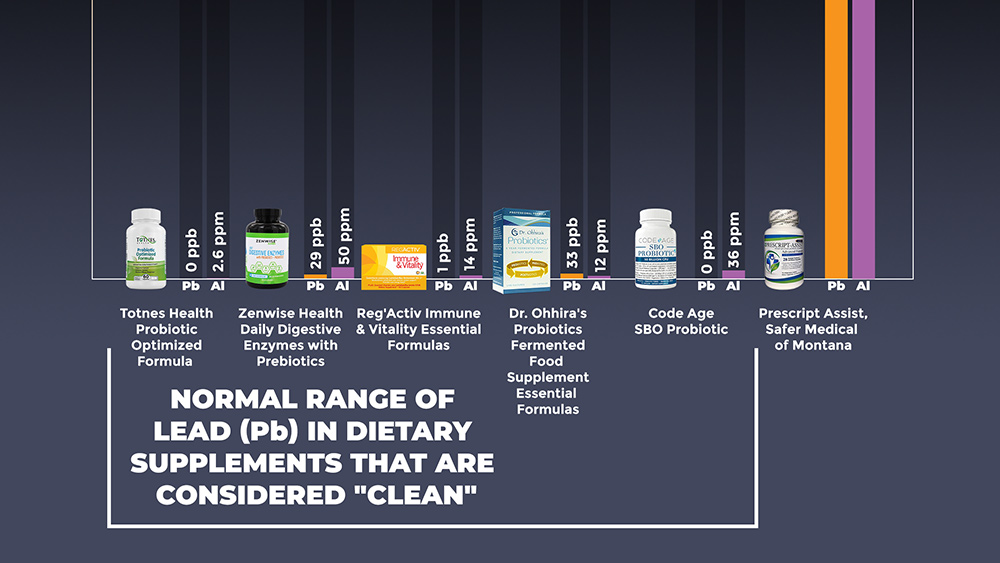Promising new research suggests targeting the endocannabinoid system to treat cognitive disorders
07/31/2019 / By Edsel Cook

Spanish researchers found new hope for patients with cognitive disorders like Down syndrome. Their experiment on cognitively-impaired mice revealed a link between Down syndrome and the endocannabinoid system. Furthermore, they identified cannabinoid receptor type-1 (CB1R) as a possible target for the treatment of Down syndrome.
Mental disability stems from many causes, including genetic problems. The most widespread of these is Down syndrome, a condition caused by the partial or complete trisomy of chromosome 21.
Trisomy is a chromosomal disorder where an extra chromosome appears besides the usual 46. Down syndrome is also called trisomy 21 since it involves the trisomy of chromosome 21.
Researchers from the Pompeu Fabra University (UPF) suspected that the endocannabinoid system might influence Down syndrome. This biological system plays a part in learning, memory, and many other functions of the body.
Previous studies did not explore the role played by the endocannabinoid system in Down syndrome. Dr. Andres Ozaita and Dr. Rafael Maldonado led their UPF colleagues to investigate the potential link between the two. (Related: Understanding your endocannabinoid system and the role it plays in your health.)
What role does the endocannabinoid system play in Down syndrome in mice?
In their study, the UPF researchers set up two animal models that simulated the genetic abnormalities displayed by patients with Down disease. First, they used the segmentally trisomic Ts65Dn model, the best-characterized pre-clinical model of the genetic disorder.

|
Discover how to prevent and reverse heart disease (and other cardio related events) with this free ebook: Written by popular Natural News writer Vicki Batt, this book includes everything you need to know about preventing heart disease, reversing hypertension, and nurturing your cardiac health without medication. Learn More. |
The researchers noted the increased expression of cannabinoid type-1 receptor (CB1R) — the endocannabinoid receptor targeted by cannabinoids — in Ts65Dn mice. They also reported the increased CB1R activity in excitatory terminals of the hippocampus, the region of the brain involved in memory.
The researchers reduced the expression of CB1R in the hippocampus of the animals through a process called gene knockdown. They found that the inhibition of CB1R restored hippocampal-dependent memory.
Similarly, administration of a drug that blocks CB1R restored deficits in memory, synaptic plasticity in the hippocampus, and production of adult nerve cells in the dentate gyrus, one of the gateways to the hippocampus.
CB1R inhibition also conferred an additional benefit in female mice; it normalized the animals’ hippocampal-dependent memory.
To find out more about the mechanisms involved, the UPF researchers used a second transgenic mouse model that over-expresses a gene candidate for Down syndrome. They reported that CB1R inhibition in this model achieved the same results.
Inhibiting the activity of the CB1 receptor improved the symptoms of Down syndrome
“In these models, we have found that CB1 receptor has a higher expression and is also more active in a brain area with a key role in memory as is the hippocampus,” reported Ozaita.
The results of the UPF study revealed a correlation between the increased expression of the CB1 receptor and the memory issues experienced by mice with the genetic disorder. Animals with high CB1R activity levels were unable to recall areas they explored earlier.
On the other hand, inhibiting CB1R alleviated the memory issues seen in the mice, regardless of their gender. Both gene knockdown and pharmacological treatment successfully inhibited CB1R expression. As a result, the researchers believe that the CB1 receptor is a potential target for the treatment of Down syndrome.
Additionally, the researchers noted that the pharmacological treatments they used improved the synaptic plasticity of mice in their Down syndrome model. These treatments also encouraged cell proliferation in certain parts of the brain involved in the formation of new neurons.
“Our data show the CB1 receptor as a new target that could improve cognitive abilities in individuals with Down syndrome,” said Ozaita. “Although this is our working hypothesis, our study is the first step of many others that will be needed to confirm this hypothesis.”
Sources include:
Tagged Under: brain function, brain health, breakthrough, chromosome abnormalities, cognitive abilities, cognitive function, cognitive health, discoveries, disease treatments, down syndrome, endocannabinoid system, endocannabinoids, genetic disorders, genetics, hippocampus, memory improvement, memory problems, mental health, nervous system, research, trisomy 21


















